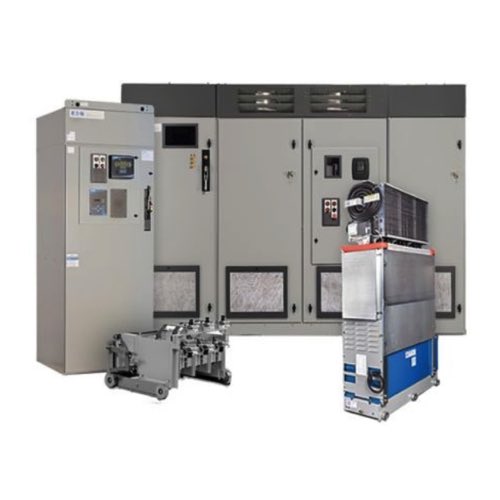Eaton Soft Starters

RSP Supply carries a full line of Eaton soft starters designed for smooth motor acceleration and deceleration, reducing mechanical stress, improving efficiency, and extending equipment life. These electronic devices provide precise voltage control during motor startup and shutdown, protecting connected systems from sudden surges or torque shock.
Eaton’s reduced-voltage soft starters are compact, easy to install, and simple to program, offering reliable three-phase motor control with built-in phase monitoring and overload protection. They deliver clean, sinusoidal voltage output for superior soft control, ensuring consistent performance in demanding industrial environments. Eaton soft starters are available in multiple series and configurations to support a wide range of motor sizes and voltages. They are ideal for use in HVAC, manufacturing, and water treatment systems where smooth operation and reliability are essential. Combining performance, simplicity, and cost-effectiveness, Eaton soft starters offer dependable motor protection with minimal maintenance.
More Information about Eaton Soft Starters
Various Eaton soft starter series meet NEMA standards and are tailored to control motors of diverse sizes and voltages. The combination of performance, durability, and simplicity makes them a cost-effective solution for protecting and controlling motors used in manufacturing, water treatment, HVAC systems, and other delicate applications across a range of industries. Technical support is always just a phone call away, making the soft starter an even more reliable option for performance optimization and problem resolution.
FAQs
Q: What are Eaton soft starters used for?
Eaton soft starters are used to reduce mechanical and electrical stress on motors by gradually increasing and decreasing voltage during startup and shutdown.
Q: Do Eaton soft starters help improve energy efficiency?
Yes. Eaton soft starters improve energy efficiency by optimizing motor performance, minimizing current spikes, and reducing overall wear on equipment.
Q: Are Eaton soft starters easy to install and configure?
Yes. Their compact, modular design and intuitive programming interface make them easy to install and set up for various motor control applications.
Q: Are Eaton soft starters compatible with different motor sizes?
Yes. Eaton soft starters are available in multiple current ratings and voltage configurations to support small to large three-phase motors.
Q: Does the price of Eaton soft starters increase with the number of features?
Yes. Pricing generally scales with advanced features such as wider current ranges, enhanced monitoring, and added motor protection capabilities.
Why Buy Eaton Soft Starters from RSP Supply
RSP Supply offers Eaton soft starters with fast shipping, competitive pricing, and expert customer support. Whether you’re upgrading an existing motor control system or building new infrastructure, our technical team ensures you get the right configuration for your application. We supply reliable, industry-standard Eaton products trusted by professionals across HVAC, manufacturing, and automation sectors; helping you minimize downtime, improve performance, and keep your operations running efficiently.

